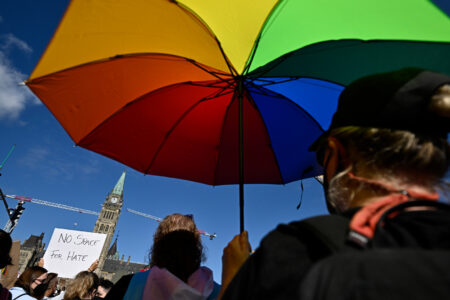
COVID-19 has posed tough questions for medical and life science researchers: How did the pandemic begin? What precautions are needed to stop its spread? Which lines of vaccine development appear most promising?
Yet the crisis we’re in should arguably open the social science tool kit at least as wide as the doors of our colleagues’ laboratories. Many worries Canadians share with friends and family concern not vectors of disease or the timing of a potential vaccine but rather the seeming breakdown of effective governments, economies and civil societies. As a social scientist, I believe that if we as citizens were less distressed over the health of these three crucial pivots, we’d be coping much better with the challenges we face.
With that in mind, I suggest five areas where social science perspectives can contribute to our national conversation.
First, my discipline of political science focuses on the state and, in particular, relations among governments, businesses and citizens. This pandemic offers a laboratory-like opportunity to examine which models of state/economy/society produce the best outcomes for human health. I expect neither top-down authoritarian regimes like China and Iran nor weak-state democracies with polarized societies such as the current United States will prove optimal. Instead, evidence from this early moment indicates representative democracies with robust state capacity to marshal not just social solidarity but also business cooperation have most nimbly addressed the crisis. Germany, South Korea and Taiwan may thus offer important lessons as we consider what features to emulate going forward.
Second, if experts say physical distance between people is crucial to stopping the spread of disease, then who has followed their advice? Are the same citizens who dutifully vote in elections also the most likely to uphold norms in this emergency? In Canada, rates of electoral turnout tend to be relatively high among older people as well as among voters in small towns and rural communities. During recent weeks, photographs of young people violating physical distance rules in large cities lent anecdotal support to the role of age and community size. Social research in the months ahead will provide a more systematic account of human behaviour during the crisis and, in turn, can guide discussions about how to disseminate responsible social norms.
Third, if health care professionals need specific equipment to save lives, then what kinds of organizations step forward to assist? Early observations suggest Canadian-owned and -controlled businesses stand out from foreign-owned and -controlled entities. One media report from late March asked corporate leaders what they were doing in response to the crisis. An entrepreneur leading her own Canadian company detailed efforts to begin manufacturing ventilators in what was normally an auto parts factory. By contrast, the president of a branch plant car manufacturer said he was waiting to hear from the government.
A fourth set of questions concern societal norms. Does one crisis in its early days alter our values and priorities? Given the shutdown of international tourism, people can no longer post fresh new selfies taken in exotic locations. We need time to see if norms shift toward more altruistic sources of pride. Instead of climbing distant peaks, for example, will people in social networks start to brag about phoning an isolated senior citizen? Or cooking her a meal? Will shoppers actively distinguish among vendors or might investors select their investments based on how a given company treated its employees during the pandemic?
Finally, social science can illuminate a great deal about the international context in which Canada is addressing this crisis. The willingness of Russia, China and Cuba to come to the aid of countries such as Italy during the pandemic could further threaten the transatlantic alliance forged among liberal democracies in the wake of the Second World War. At the same time, tensions between the US and its historic allies, including Canada, over access to crucial protective equipment drive home a sense that older collaborative norms have severely eroded.
While Donald Trump is widely blamed for many of these patterns, it’s clear that isolationism in US foreign policy has deep roots, which vastly predate his arrival in office. Future research will show us how effectively Canada worked to restore levels of trust and cooperation in our hemisphere as well as at the global level.
These large, open-ended questions face not just public leaders and social scientists, but all of us as citizens. It’s worth using our pandemic time to think creatively about each of them.
This article is part of the The Coronavirus Pandemic: Canada’s Response special feature.
Photo: Shutterstock, by ktsdesign.








